IT WILL BE CHAOS
With the presence of one its producing staff, Basement Cultural Foundation screened the Emmy documentary winner film “It Will Be Chaos” within its activity Cinema Lumière, on the 19th of October 2019. A film by: Lorena Luciano and Filippo Piscopo. The film is documenting the journey of immigration of Eritreans and Syrians reflected by the threatening voyages of Aregai and the Syrian family of Wael and Doha through the Mediterranean Sea in order to reach European continent. With Sarah Bergamaschi, a producer of the film, further details were summarized by Bergamaschi before the screening about the concept and scenario of the film, saving other details for the open discussion after the screening.
The event started with an introduction by Jehad Ba-Break, included a general idea of the film, the directors and the event’s guest the producer Sarah Bergamaschi giving the platform for Bergmaschi to represent the film, and its genesis in the New York City, after talking with the directors about the story of Wael and Doha and their will to travel illegally to Germany, from their country of residence Turkey via the Mediterranean to Greece and other Balkan countries, the story Bergamaschi told the director made them enthusiastic to start filming, explaining that her personal enthusiasm is based on her close relation to the Syrian family, hosted by them in the pre war Syria, where she studied her proper Arabic and Levantine dialect, and informing the public that she will be available on the open discussion for further details.
As summary, the film is highlighting the risky journeys of the Middle Eastern and African refugees, escaping their native country in order to reach another country to earn a convenient life. Either via the coasts of Turkey or the coasts of Libya, both voyages are considered an exhausting and dangerous. Documenting the trips details with the stories of Wael and Doha from Syria, and the survivor Aregai, an Eritrean refugee who survived drowning. The film approaches the radical anti-immigrants movements in Europe, which faces the refugees on their new country of residency, and explaining the cultural and economic contexts of the struggle. Moreover, the film passes through the refugees’ camps in Europe, the routes to Western Europe via the Balkan Countries, integration issues in a very summarized yet comprehensive scenario.
By the end of the show, Bergamaschi started to receive questions and commentaries from the audience. At first, one of the audiences was wondering of the pre-immigration events, saying that the film did not cover that. The producer answer was that they were displaying the humanitarian conditions of the refugees away from politics and who is right and who is wrong.
The Second comment was by the Engineer Abdul-Wasea Al-Adomi, who appreciated the work, and acknowledging his deep respect for the Italians, one of the first countries that opened its doors for Yemenis to study and to know the world. Furthermore, for the close relation between the Italian and Arabic culture. Sarah Agreed with Al-Adomi articulating that this one of many reasons making her sentiments towards the Middle Eastern Culture.
Nabeel Qasem, a Francophone translator and an artist, an admirer of the film, mentioning that film was against his expectations; it has a great cinematic perspectives and it is unlike many documentaries is worth watching. Qasem followed by saying that the idea of documenting a story does not necessarily mean that it should bring justice or solutions; it is a way of documenting the cases and displaying it to the viewers, and the producer emphasized on this idea telling Nabeel that he said exactly what about to be said by her.
A question followed by Faozi Al-Ghuaidi, mentioning that he noticed that most of the interviewed people in the film were above 25 years old, and asking about the opinion of the younger generation. Bergamaschi replied that this true, but also the opinions do not differentiates from generation to another, and because she is Italian, she is well-aware of this information. She clarifies that most of the ideas in the film are discussed on diners and inside the family house and always on the table. Continuing that she is from a generation that does not believe in the borders between the countries and the whole world should live without it.
One of the attendees asked about the major obstacles that faces the film staff, she answered that the trip was one of the most difficult trips, although the trip faced by the immigrants are much worse; the sentimental moments the team faced was beyond imagination. Another person asked about the screening when immigrants crossing the sea and how did the immigrants and traffickers agree one shooting them. She answered that film was with permission of people who appeared in it, but when crossing the sea the immigrants volunteered to shoot videos using their phones, and the team did not join. them; there will be some consequences with the traffickers if the team joined, so this was the most convenient procedure.
The last comment was by Mohammed Al-Bahloli, suggesting display the film in the countries facing catastrophes in order to make them change their policies. Sara replied that this is a decision of the government not for the film, but she hopes that the film has this effect on all the countries facing this issue.
Finally, Bergamaschi thanked the audience, and shared her positive impression about the Yemeni audience.

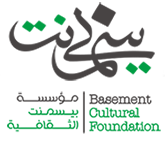
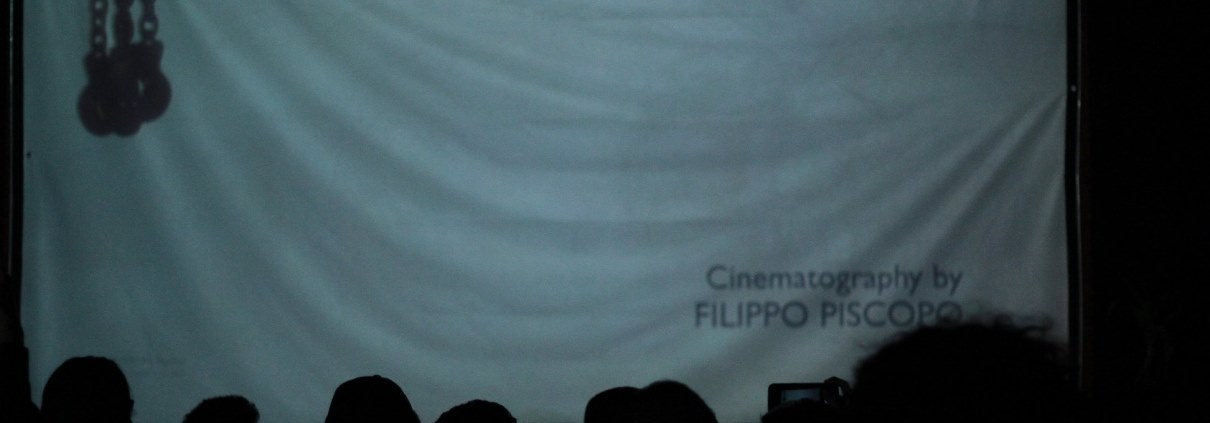
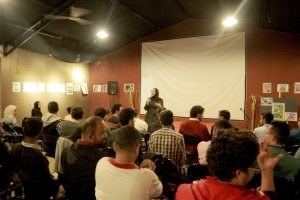
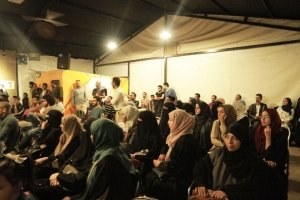
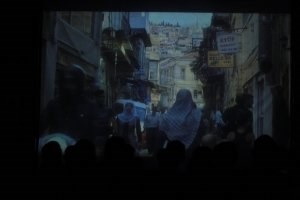
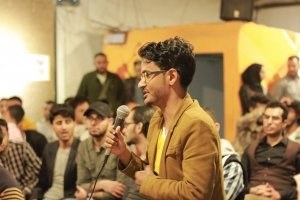
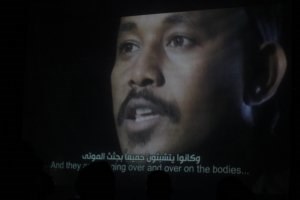
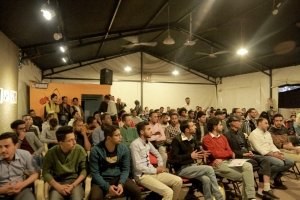
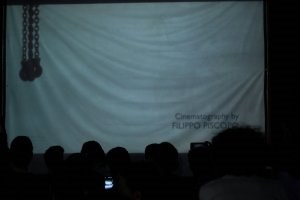
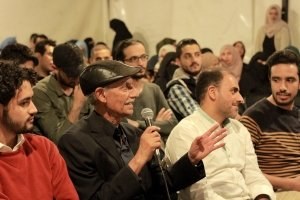


Leave a Reply
Want to join the discussion?Feel free to contribute!